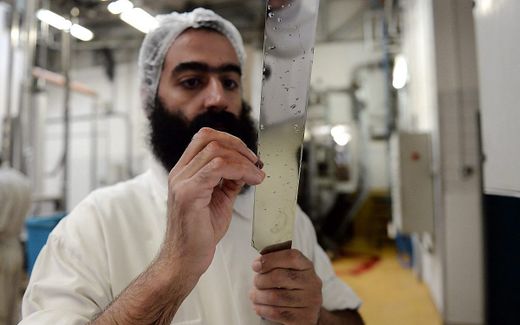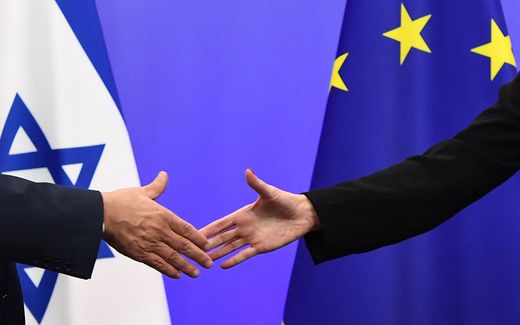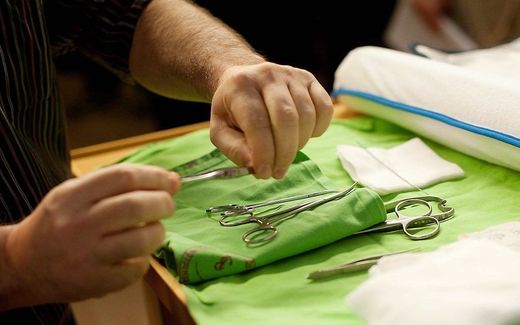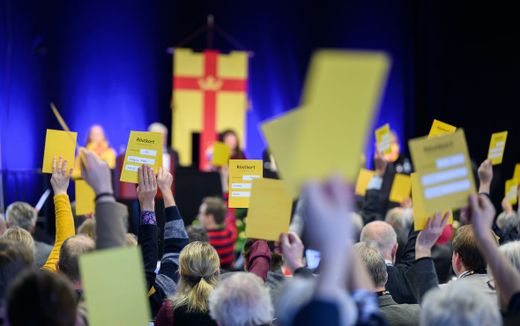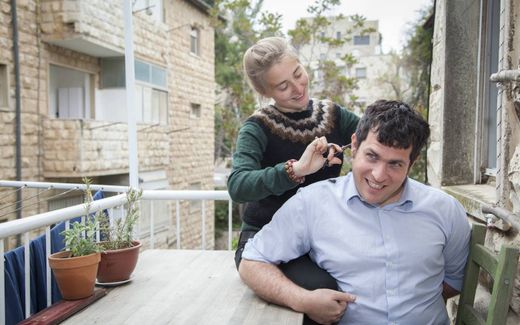Leading Danish Jew publishes memoirs: Anti-Zionists want us to die
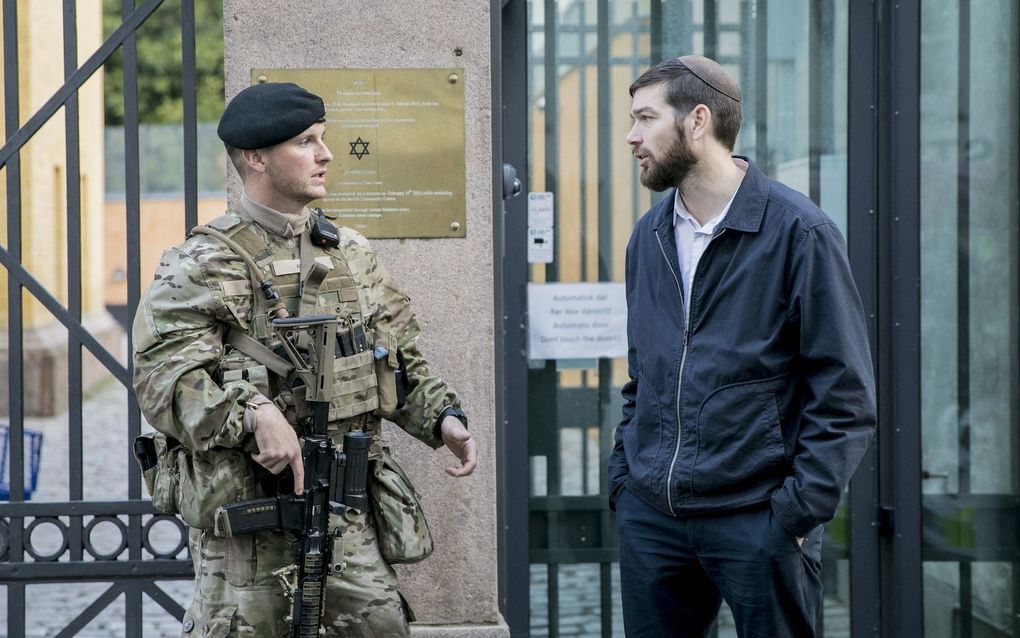
Military protection at the door of the synagogue in Copenhagen. Photo AFP, Nikolai Linares
Northern Europe
Openly anti-Semitism is rare in Denmark nowadays. It is coming under another cloak and is called anti-Zionism. But the motive is the same: “Anti-Zionists want Danish Jews to die.”
That writes Henri Goldstein in the Danish Kristeligt Dagblad this week. Goldstein is president of the Mosaic Faith Society. He has published his memoirs “Brudstykker af et dansk-jødisk Liv” (Fragments of a Danish-Jewish Life).
Goldstein (a medical doctor, born in 1948) has had “a good life” as a Jew in Denmark, he says. “Even though there have been scratches in the paint.”

Part of the scratches is that Jewish buildings in Denmark have to be guarded 24 hours a day, “and not without reason”, he says. “So-called anti-Zionists want Danish Jews to die. The word does not matter – it is anti-Semitism.”
Holocaust not one of the many genocides
Jews have been living in the country for 400 years. Since 1814, the Israelites have enjoyed legal equality before the law.
In Goldstein’s upbringing, the deportation of 500 Jews to Theresienstadt was very important, as was the survival of others. Especially nowadays, there is much more openness, and there are detailed descriptions of the Holocaust history.
The Holocaust is still a unique phenomenon, he stresses. “When Danish society talks about the Holocaust, for example, in the school system, one erroneously emphasises that the murder of six million European Jews is only one among many genocides.”
But after the war, anti-Semitism did not disappear. Anti-Semitism is just “hating Jews”. “But no one wants to be called anti-Semitic”, Goldstein says. “If you look at anti-Semitism as it manifests itself in 2022, it just gets new designations.”
He sees some hatred among fanatical Muslims. Their caricatures are very similar to the drawings from the Nazis.
After the Jewish state
“But part of the anti-Semitism now took the term anti-Zionism, because then they went after the Jewish state, Israel, and not against Jews. Of course, it should be possible to criticise the Jewish state. “Israel is a democracy, and debate and criticism of Israel are just as acceptable as criticism of, for example, Denmark, the Netherlands, England, France and so on.”
And still, this could be anti-Jewish. “Anti-Semitism emerges when Israel is judged on different terms than the other countries. When Israel is made the Jew among the nations as, for example, in parts of the UN system, it is anti-Semitism.”
Goldstein thinks it is politically correct to say something negative about Israel in some circles. “The same is true when some media in the conflict in the Middle East consistently say that the Palestinians “announce” or “inform”, but Israel “claims”. The media has then taken a stand.”
Debate about circumcision
The Danish government is sensitive to the interests of the Jews, Goldstein assures. There is a plan to combat anti-Semitism. “We as Jews are happy about this – we are grateful for the recognition that anti-Semitism is a special (old) discrimination that requires a special pattern of action.” But having said that, Goldstein stresses that the Jewish community is “eagerly awaiting” the implementation of this action plan.
He refers to two Danish political decisions regarding Jewish life. The first is the banning of kosher slaughter in 2014. That was a “serious blow”, although religious people can still import ritual slaughtered meat from elsewhere “so that contemporary Jewish life could continue.” However, religious slaughter is getting more difficult all over Europe.

Another political debate is more serious: circumcision. There was a serious debate in the Danish parliament to forbid early circumcision for baby boys. Earlier, Goldstein called this debate the “worst threat since World War II.” The parliament decided not to ban that in May 2021. However, there are still debates to discourage this on a local level in the country. Goldstein: “If the law forbids the possibility of holding a service in the synagogue or circumcising our boys on the eighth day, Jewish life is seriously threatened.”
Related Articles


